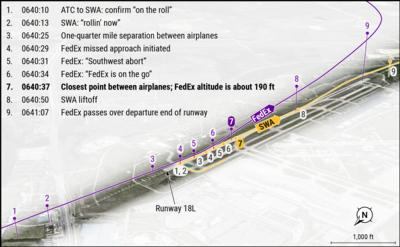Tue, Aug 26, 2025
Advertisement
More News
 Airborne 11.24.25: ANN's 30th!, Starships V3 Booster Boom, Earhart Records
Airborne 11.24.25: ANN's 30th!, Starships V3 Booster Boom, Earhart Records
Also: 1st-Ever Space Crime Was a Fraud, IAE Buys Diamonds, Kennon Bows Out, Perseverance Rover An interesting moment came about this past Sunday as ANN CEO, Jim Campbell, noted tha>[...]
 ANN FAQ: Submit a News Story!
ANN FAQ: Submit a News Story!
Have A Story That NEEDS To Be Featured On Aero-News? Here’s How To Submit A Story To Our Team Some of the greatest new stories ANN has ever covered have been submitted by our>[...]
 Classic Aero-TV: DeltaHawk Aero Engine Defies Convention
Classic Aero-TV: DeltaHawk Aero Engine Defies Convention
From 2023 (YouTube Edition): Deviation from the Historical Mean Racine, Wisconsin-based DeltaHawk is a privately-held manufacturer of reciprocating engines for aircraft and hybrid >[...]
 NTSB Final Report: Glasair GlaStar
NTSB Final Report: Glasair GlaStar
Smoke Began Entering The Cockpit During The Landing Flare, And Then The Pilot Noticed Flames On The Right Side Of The Airplane Analysis: The pilot reported that about 30 minutes in>[...]
 ANN's Daily Aero-Term (11.22.25): Remote Communications Outlet (RCO)
ANN's Daily Aero-Term (11.22.25): Remote Communications Outlet (RCO)
Remote Communications Outlet (RCO) An unmanned communications facility remotely controlled by air traffic personnel. RCOs serve FSSs. Remote Transmitter/Receivers (RTR) serve termi>[...]
blog comments powered by Disqus





